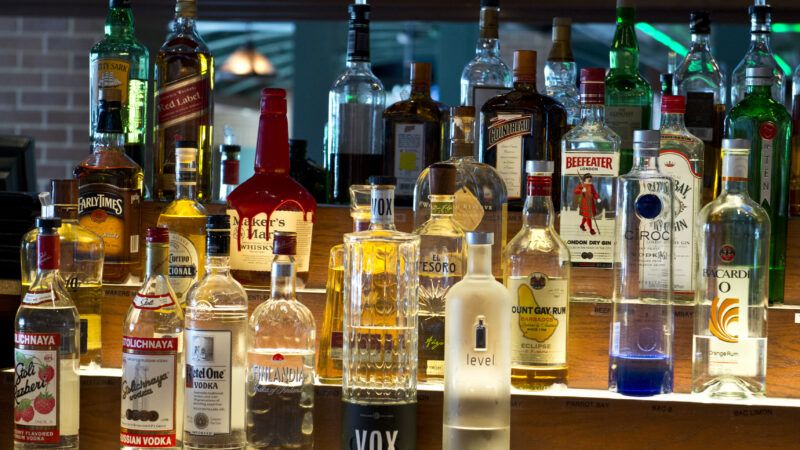July Brings a Mixed Bag of New State Alcohol Laws
California bartenders will need to be certified, while Virginians can now bring up to three gallons of booze across state lines.

In many states, July heralds the introduction of a host of new laws. In Florida, for example, nearly 150 new laws took effect this month. As seemingly happens every year, a good number of these new laws pertain to the regulation of alcohol. And this year's new alcohol laws, like those that preceded them, are very much a mixed bag.
Take the aforementioned Sunshine State. Florida lawmakers amended the state's beverage laws to allow restaurants and bars to sell alcohol to go (provided, unfortunately, that the order must be accompanied by a food purchase) and allows restaurant patrons to take home unfinished bottles of wine (removing a previous requirement that they may only do so if they purchased "a full course meal consisting of a salad or vegetable, entree, a beverage, and bread").
In Virginia, no fewer than five new alcohol laws took effect on July 1. The better new laws increase the quantity of alcohol a person may bring into the state (to 3 gallons, from 1 gallon, which is still too low), extend for two years (also still too low) the state's approval of to-go alcohol sales (which the state really should make permanent instead), and make permanent rules allowing the sale of spirits of up to 151 proof (which is, alas, still too low). The new laws also add educational requirements for those who deliver alcohol on behalf of retailers and divert a portion of taxes collected from the sale of Virginia-made liquor to a Virginia Spirits Promotion Fund—the latter of which merely forces in-state distillers to pay to take part in a state marketing scheme.
Across the country, California has also mandated educational requirements for people who serve alcohol at bars, restaurants, breweries, and other sites in the state—including learning about the impacts of alcohol—that had been optional. While that new requirement may sound reasonable, one bartender says the law's requirements are likely irrelevant and doubts they will have much impact in the real world.
"I feel like most of the people doing the training will more than likely skim through the information and do the bare minimum to pass," Ricardo Fernandez, a bartender at Cheesecake Factory, told the Sacramento Bee this week. "I have to pay for a certification to continue doing the same thing that I was already doing before the certification."
In addition to the aforementioned changes in Florida, Virginia, and California, many other alcohol laws will no doubt change further over the next year—in some cases sooner than later. In North Carolina, for example, the state legislature voted this week to end an idiotic requirement that bars may only serve "members" who pay a fee and provide sensitive personal information to bar owners. The bill, which now awaits the governor's signature, would also allow more universities to sell alcohol at sporting events and loosen some restrictions on distilleries.
Alcohol-related ballot measures are also in the works in some states. For example, this fall, voters in Dickinson County, Kansas, will consider allowing breweries to operate in the county. And in Colorado, no fewer than four alcohol-related ballot measures could appear before voters this fall.
"Those initiatives would let grocery and convenience stores sell wine, allow for third-party deliveries of alcohol, increase the number of liquor licenses a single company can hold and give local jurisdictions control over alcohol licensing," Colorado Public Radio reported this week.
While wins for the first three proposed ballot measures would deregulate alcohol sales in Colorado further—a big plus—the latter could create headaches (or worse) for alcohol sellers and consumers in the state. In other words, Colorado's booze proposals are—like a microcosm of those across the nation—exactly the sort of mixed bag of alcohol laws that states continue to adopt every year.
